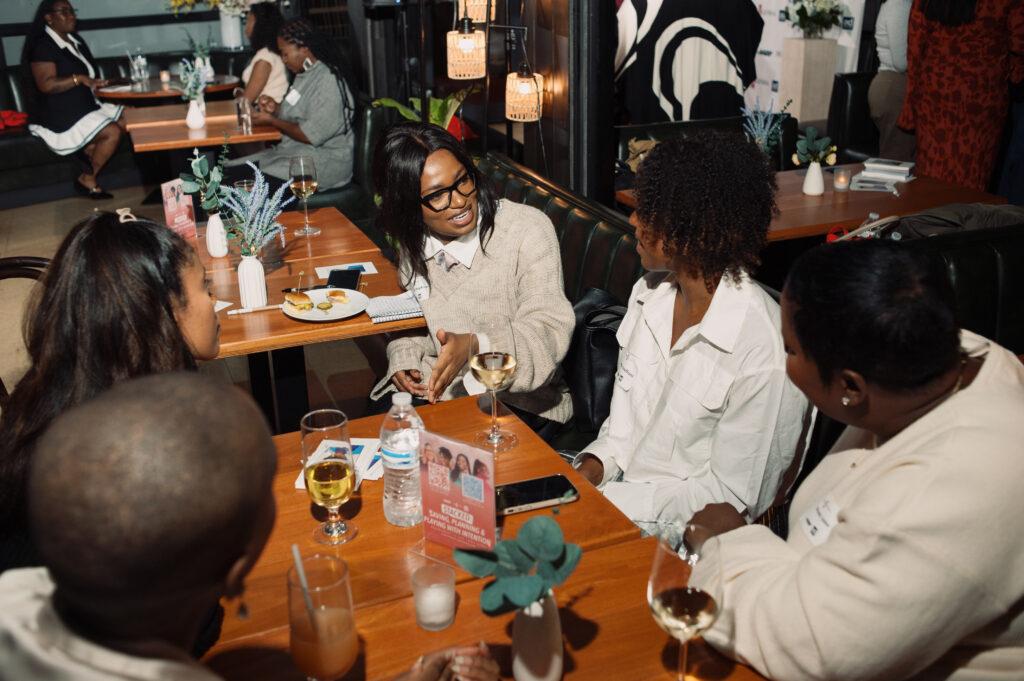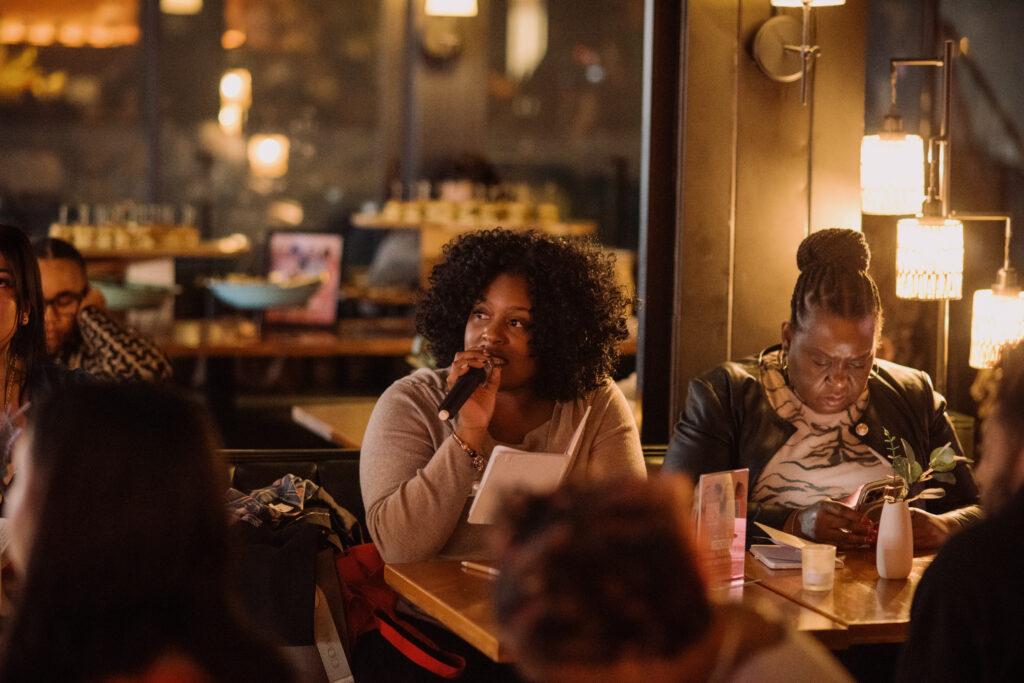The Real Talk About Retirement That Every Woman Needs To Hear
Too many of us aren’t thinking about retirement as much as we should. We put it off as a “future” problem, but planning about your future should happen now.
AARP and The Ad Council are working to change this narrative and collaborated with Her Agenda to bring this message forward. Their efforts culminated into a panel conversation on Oct. 23 in New York City titled Stacked: Saving, Planning, & Playing With Intention. The event set out to empower women about intentional long term planning for their futures.
“We wanted to put together this event so that your audience could hear from experts about the importance of planning and saving for retirement as early as possible in life,” Hilary Landa, senior campaign director at Ad Council shared.
She said the goal of the This Is Pretirement campaign is to encourage people to take attainable steps now that can better set them up for the long-term.
“We aim to fill that gap through the free information and tips that we provide on ThisIsPretirement.org,” she said. “So that people can get started as soon as possible and take simple, easy steps today, tomorrow, that will make a big difference for their long-term financial future.”

The Panelists Who Are Leading Finance Conversations
The panel was hosted by Her Agenda founder Rhonesha Byng, author and founder of “The Broke Black Girl” Dasha Kennedy, senior director of finance and employment at AARP Lori Trawinski, and author and podcast host Jamila Souffrant.
Rhonesha said they put the event together as a part of a wholistic approach of supporting ambitious women, especially as the target audience of millennials is getting older and needs to start thinking about retirement.
“Our audience is growing and evolving,” she said. “We’re millennials, we’re getting into our 40s, and we need to start to think about these things. [Some of us may] be the first person in our family to have a six-figure career, or to go to college, and so there’s no one we can look to for guidance [within our immediate family]. So we have to find guidance amongst ourselves and our community.”

So…What Should You Actually Be Doing To Save For Retirement?
All of the panelists agreed on one thing, that you should start early with whatever you have.
“I had to stop looking at small money as no money,” Dasha said. “In the beginning, large amounts of money…say $500, [or] invest $1000, in the beginning, that would’ve sent me into a frenzy. I wasn’t trying to hear that. I needed the $10 days, the $20 days, and that ended up being my saving grace.”
Lori said an accessible and tangible way to start saving today is by simply bringing your lunch to work.
“The lunch calculator takes in a data estimate for what it costs you to make lunch versus what it costs you to buy it every day,” she said. “It assumes a 2% return on that money, and in a 30-year period, which, for many people, is like your career, it could add up to $30,000 more money, and then with the interest, it goes up to like $50,000.”
During the panel Rhonesha acknowledged that there are tons of layoffs at the moment that are disproportionately impacting Black women – including nearly 300,000 Black women leaving the workforce in just three months in 2025 largely due to sweeping job cuts across public-sector agencies – and asked the panelists what are some practical steps that can be taken within the first 30 days of a layoff.

Dasha said that the first 30 days is a great time to create some stability.
“It’s time to start reviewing everything. What’s coming in, what’s going out, what can I pause, who can I call?,” she says. “I know that in a situation like that it’s so easy for us to clam up and panic and [not] do anything. But right there, that’s the best time for us to start stabilizing, getting up, and taking action.”
The panelists also discussed how to save while being in debt. Lori said that you can try to make your debt smaller.
“One of the things that you can try to do is to consolidate the debt,” she says. “I would go to the credit union, get a consolidation loan. It would cap the amount of debt and the balance would go down every month.”
Jamila encouraged people to shift their attitude when it comes to talking about money.
“Mindset is a big part of this journey,” she said. “So in order to change your mindset or to improve your mindset, surround yourself with inspiration, whether that is getting a book or reading a book online or looking at a blog or following people who actually inspire you to do better with your money is really key.”

What Attendees Had To Say
Brianne Clark-White said she was encouraged to attend the event by a friend and was hoping to gain some knowledge about how to best plan for her and her one year old son’s future.
“Obviously, I’m getting by,” she said. “I feel like I have a good job. I have a career in corporate America. But sometimes I do feel like I’m just getting by, you know? Like I’m just surviving. I want to do more with the income that I have, and with me being a first-time mom, obviously, I have a shift in my financial goal.”
She added that while she did get some valuable tips about how to save for her son directly, her main takeaway is actually how planning better for herself will help her son as well.
“I have to make sure that I’m set first, she said. “Setting myself up for success is helping my child more in the long run [so] that he doesn’t have to take care of me when I get older.”
Shaina McGregor, who attended to support her sister, panelist Jamila, said she’s taking away that even the little things add up.
“When you sometimes think about the big picture, you’re like all of these other things are a priority,” she said. “But when you remember that the small things add up, it’s really important to be like, okay, even if I can only contribute XYZ to my Roth IRA, it’s so worthwhile.”
Watch the full panel in the video above. View and download photos here.
[Editor’s note: This article was created in collaboration with The Ad Council and AARP.]





